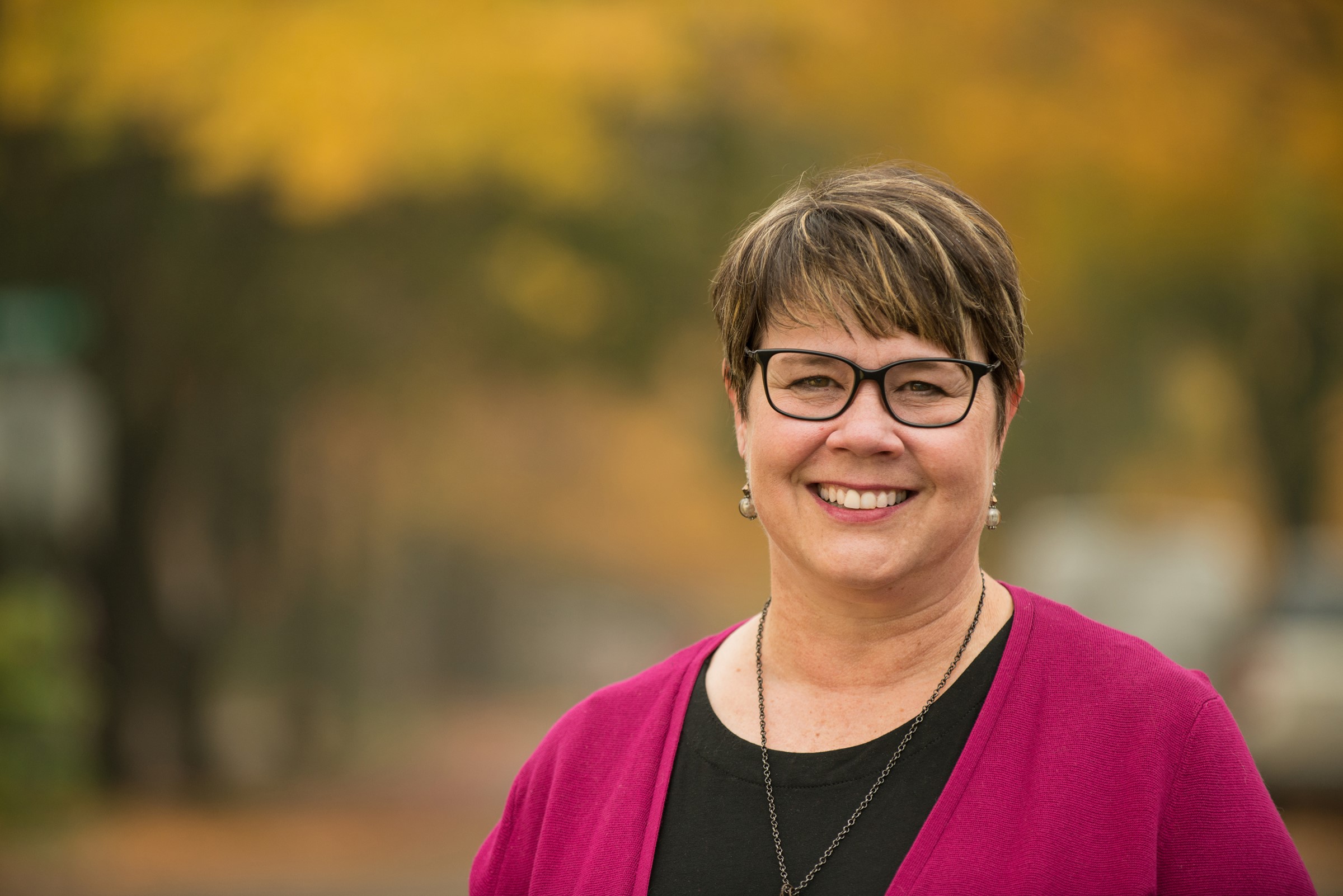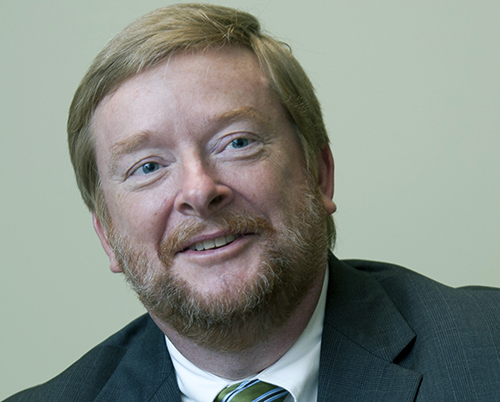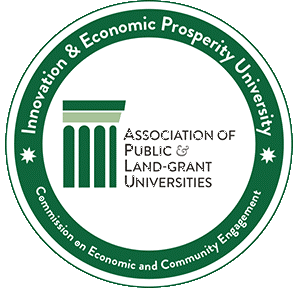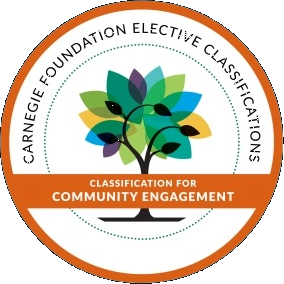October 12, 2021
Making Entrepreneurship and the Societal Impacts of Research Count in Promotion and Tenure
Contact: University Outreach and Engagement, Communication and Information Technology, cit@msu.edu, engage.msu.edu
October 6, 2021

Laurie Van Egeren
EAST LANSING, MI: Two MSU leaders are part of a multi-institution team that has published a paper in the journal Science that provides recommendations for incorporating innovation, entrepreneurship, and other scholarly endeavors that impact society into university promotion and tenure (P&T) criteria. Laurie Van Egeren, Interim Associate Provost for University Outreach and Engagement, and Charles Hasemann, Assistant Vice President for Innovation and Economic Development, were part of the collaboration, led by Oregon State University, that included 18 authors from 14 institutions across the United States.
Published last month, Innovation, entrepreneurship, promotion, and tenure highlights the work of the Promotion and Tenure - Innovation and Entrepreneurship (PTIE) Coalition, a group of more than 100 leaders representing 65 universities and 13 national organizations seeking to identify best practices for the inclusive recognition of innovation and entrepreneurship impact by university faculty in P&T processes.
While current P&T practices heavily weight traditional academic output such as journal articles and grant funding, the authors point out that current reward structures can be misaligned with institutional mission statements that value public impact, funders who require research to demonstrate broader societal impacts, and evolving expectations of faculty and students, who increasingly seek to engage in scholarship that addresses societal challenges and has tangible public impact. Additionally, the authors note that funders and professional associations are recognizing the need to alter academic systems in ways that also address systemic inequities and exclusion.

Charles Hasemann
“As the PTIE initiative evolved, it became clear that a core element of these recommendations had to acknowledge that diverse faculty enact their scholarship in diverse ways,” said Laurie Van Egeren, Interim Associate Provost for University Outreach Engagement. “The concept of scholarship is expanding beyond communicating with one’s academic peers – which is not in question – to additional forms of knowledge generation and dissemination, including through innovation and entrepreneurship activities.”
Key recommendations cited in the article include four actionable, flexible core elements that can be integrated into the P&T process, and could be adapted for other areas of scholarship not traditionally recognized by the academy:
- Overarching language that links a university’s stated mission, values, and goals to the criteria for P&T evaluation
- Explicit description of a diverse list of metrics with examples for evaluation that can be integrated into existing university criteria
- Sample text for capturing evidence of innovation and entrepreneurial (I&E)-related impact within the commonly used research, teaching, and service categories
- Recommendations for process changes to ensure recognition of faculty engagement in I&E, acceptance of metric criteria, and an unbiased evaluation of each case to help create culture change.
The authors acknowledge that current P&T structures are deeply embedded in organizational cultures and that the reform of P&T will require “intentionality, leadership, and commitment” to improving inclusivity, as well as incorporating recognition of faculty who engage in diverse forms of scholarship.
“The most important thing I took away from this work is that we are not talking about overriding the traditional tenure values with new ones—this is not about ‘or’; this is about ‘and’. We need to respect the traditional values of teaching, scholarship and service, and we need to reward the translation of new ideas into practice through the entrepreneurial innovation of our faculty,” said Charles Hasemann, Assistant Vice President for Innovation and Economic Development. “Tenure decisions are complex, and the full spectrum of contribution to society should be measured and valued in that process. Our stakeholders are counting on us to bring our innovations to practice in our world.”
The PTIE Coalition is planning an in-person summit for late Spring 2022 in Washington, D.C. The annual summit convenes key stakeholders to discuss the value and inclusion of evidence-based data, experimental knowledge and impact outcomes derived from innovation and entrepreneurial (I&E) achievements as additional components in promotion and tenure (P&T) decisions for higher education nationally.









